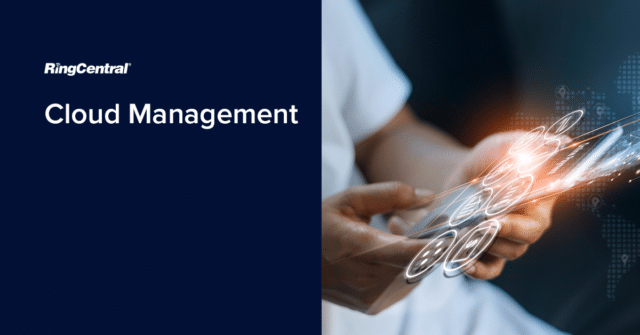So your business has made the decision to move to cloud-based systems. These could range from storage to Infrastructure as a Service (IaaS), or Platform as a Service (PaaS). But whatever size your company is, and whatever size or extent of your cloud systems, you are going to need a way to oversee the various aspects, platforms, and applications.
Just as you have administrative oversight and control at physical premises, you need something similar for all cloud-based and virtualisation activities. Without such oversight, then things could get messy and confusing, and that can have serious negative effects on your business. Understanding cloud management is essential for efficient working.
What is cloud management?
Cloud management comprises the methods and processes by which administrators and/or managers control and streamline all their services, functions, and products that are cloud-based. This can include who has access to what and how they access it, as well as overall control of all data, applications, and services.
Essentially, it is about giving those administrators the ability to access all the cloud resources needed to ensure smooth operations. That can include automating some or all processes if they wish (and if automation also contributes to how the systems operate). It also allows them to tweak and make adjustments if and when needed.
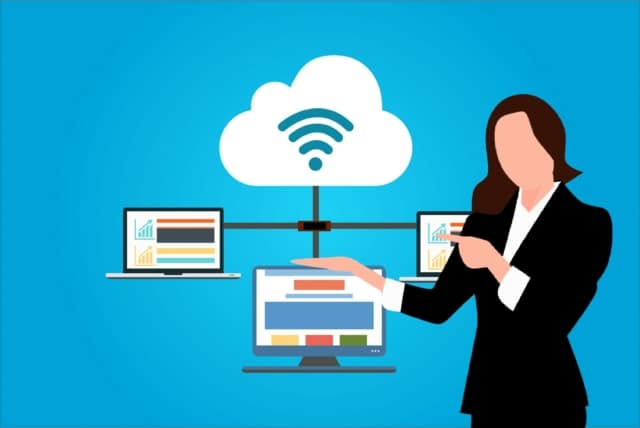
We see increasing amounts of automation in many aspects of how a business operates, and it can be an essential factor when it comes to cloud management.
As well as the control side to management, there is also the monitoring aspect. A good administrator will keep a close eye on usage and cost. Not only in reference to business operating expenses but also in relation to how the chosen cloud packages fit in with needs. Is too much being spent on one component that may not be needed at the level purchased?
Monitoring also allows for close control over flexibility and scalability. New projects can mean different needs, both in terms of the level of usage and types of XaaS (everything as a service) components that may be required. Good cloud management means a business can be reactive to changing needs, whether short or long term.
How does cloud management work?
When a company has cloud management needs, they will typically buy existing private, public, or hybrid cloud management solutions software or have software customised or specially built. That is then deployed into your new or existing cloud platforms and IT environments as a virtual machine (VM). This VM will contain both a server and a database, and its sole function is to manage your cloud activities.
Your VM server then connects and communicates with application programming interfaces (APIs) to connect the database and all relevant resources. Be they virtual, container-based, or cloud-based. The database then collects and collates all infrastructure performance information. This then allows your cloud administrators to analyse performance and to make adjustments where needed.
At the very foundation of your cloud management—your connectivity and interconnectivity—is that most basic and often forgotten computing element: your operating system (OS). It is responsible for running and commanding all the technologies that make up your cloud but is also responsible for deploying the cloud management tools you have chosen to use.
Linux is a favoured operating system for cloud-based systems because it is open source. That means it can be adjusted to work with whatever cloud, or cloud-based system, you are working with. OpenStack is another popular open-source choice.
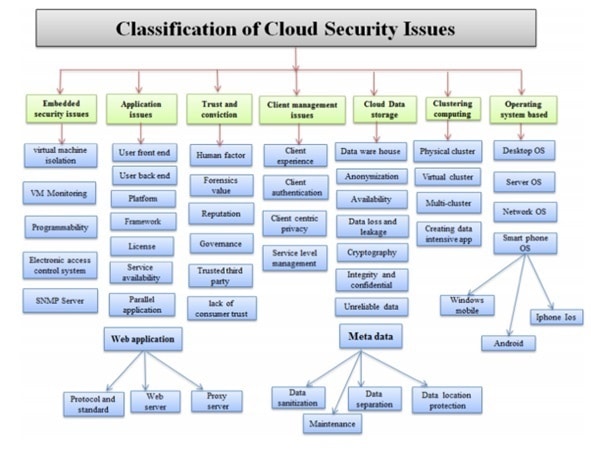
The importance of cloud management
Can you imagine the chaos and anarchy that would ensue if you had a large business with no administration, oversight, or management? Processes would soon break down through lack of communication and control. It is the same when you extend your processes and systems into the virtual worlds of the cloud.
Having effective cloud management systems (CMS) in place brings a number of benefits that underlines their importance. Here are perhaps the five most important of these:
Savings in operating expenses and other costs
On-site systems and private clouds tend to come with a number of significant costs. Not only in terms of money but also time and personnel. There is a need for almost constant maintenance and upkeep, and if something goes wrong, then you may face a lengthy – and costly – a period of downtime.
Public cloud services have always been seen as a cost-effective alternative, but without good cloud management, any savings may not materialise. If your management and your in-house IT staff do not have 360-degree visibility of all aspects of your cloud usage, then forecasting and planning future use and needs is all but impossible.
Good CMS tools change the whole game in terms of forecasting future needs and resource allocation. These tools can provide accurate snapshots of previous levels of usage in relation to workflow needs, and this allows your staff to accurately forecast what peaks and troughs may lie ahead.
This in turn reduces any wasted resources, allows for accurate resource allocation and resource management, and can lead to savings of around 30% or more.

Security
Security is something that features in every discussion we have around cloud-based computing. In recent years, there have been several well-publicised accounts of security breaches of public clouds. These breaches do not only happen to small companies but major corporations such as Apple, Yahoo, and Microsoft.
Despite these breaches, public cloud security is as good—if not better in some circumstances—as in-house infrastructure. How good, will depend on how well it is set up, monitored, and maintained. And in this area, responsibility lies with the company that buys or uses the IT service, not the company who sells or supplies it.
An efficient and vigilant CMS system will improve your security levels. It will not only monitor all your workloads but should also perform almost-constant critical security checks. If this has been set up properly, then if and when a threat does occur, the system will instantly alert you and lead to both automated and human responses.
Compliance
Compliance to industry standards and regulations may be frustrating at times, but is necessary for the protection of both companies and customers. Depending on the industry you work in, non-compliance with these laws and regulations can lead to minor or major fines or even lawsuits and compensation orders.
For any company utilising cloud storage services, one of the primary considerations is how you protect data stored anywhere. This data can be personal health information, banking and financial details, and other sensitive information.
Data breaches have historically occurred as a result of both human error and faults in the system. A good CMS provider will help maintain compliance by constant monitoring of your public cloud infrastructure and ensuring that all processes meet regulatory requirements. This includes highlighting and helping to resolve anything that is not compliant.
Expert support
Despite its purported simplicity, the ever-evolving cloud universe is actually full of complexity. Your IT staff and DevOps team may have some knowledge bases that help navigate this universe, but they may not have the overall experience needed. It doesn’t help that the many providers out there seem to offer a variety of different packages.
Identifying and choosing an expert CMS provider is a crucial step. They have specialised knowledge of different packages and how they will fit with your business needs. They stay up to date with new developments and services, and can advise you on exactly what levels of CMS you need.
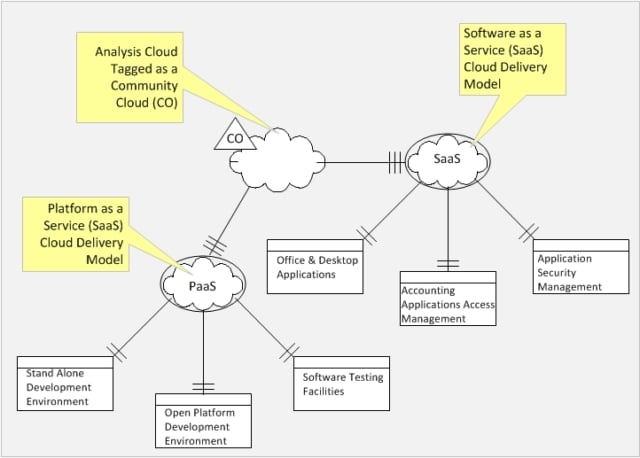
Better visibility, better control
You could almost describe the move toward using public clouds over the last few years as a stampede. The promises of swift scalability and near-limitless flexibility makes the move close to a no-brainer. But in many cases, companies have lost some element of visibility and control when they have made the move. As a result, there is an increased need for better orchestration and organisation of all your services and apps.
With provisioning of cloud services continuing, and with more and more services in diverse locations, having in-house staff monitor, report, and manage a company’s cloud service has become nigh on impossible. And that lack of access control leads to financial loss, poor resource allocation, and increases in the chances of a security breach.
This is where CMS enables you to take back control. Monitoring and analysis happen in real-time, and the reports delivered highlight every aspect of the processes that you need to know; cloud costs, usage, resource allocation, data analytics and metrics, and security risks. By enabling you to take full control again, it allows you to optimise your cloud environments.
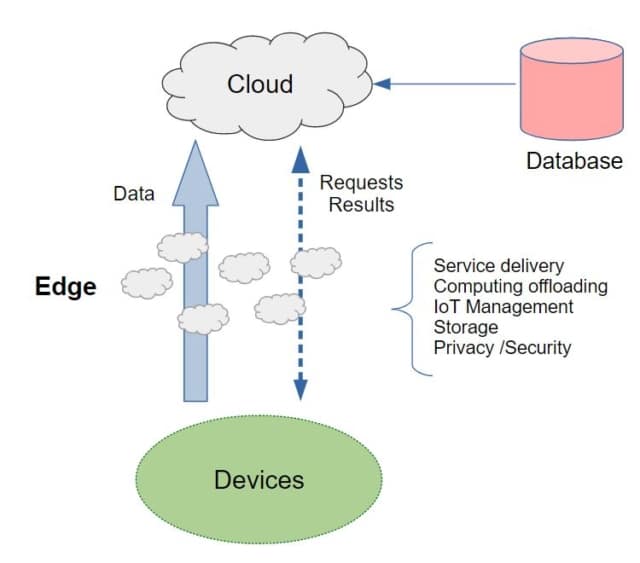
Key features of cloud management
Once you have decided you need CMS, the next step is to identify what features you need most. This is an essential part of your decision-making, as if you choose a system that does not have everything you need, you may need to replace it sooner rather than later.
Multiple cloud ability
Your keyword when considering this aspect of a CMS is interoperability. You want to be able to use an application that was originally built for one environment, on one or more other environments without having to do anything to the original app.
This is about much more than basic API compatibility, as any virtual networks may well behave differently across the different clouds you use.
The CMS you choose should enable full use of all clouds you utilise by ensuring there is total application interoperability across every IaaS cloud provider. Both those you use now and in the future. Configuration management must also be simple.
Simplification
One of the primary reasons that Infrastructure as a Service (IaaS) has become so popular, is the flexibility that it offers to its end users and the positive user experiences it normally offers. They can choose from a long list of customisable attributes and templates to suit their needs, from operating systems through to frameworks.
But that flexibility – and the many customisation features available – has led, inevitably, to more complexity. Efficient CMS, though, can overcome this issue of complexity while not taking away any of the advantages of IaaS. It allows you complete control without confusion.
Application support
Any new application you launch will not look the same later in its life. From launch, it may see constant patches, code updates, increases in capacity, and more.
Part of your CMS plan should include being able to monitor, manage, and scale any of the applications you use. It should also include a disaster recovery tool in the event that something goes wrong.
One eye on the future
It can sometimes seem that every week brings some new innovation in the IaaS market that catches us by surprise. If we could jump forward to two years from now, the entire market could look entirely different to how it does today.
This has to be taken into consideration when planning your CMS strategy. Your CMS should be able to adapt to and support a wide range of vendors and applications in private, public, and hybrid cloud areas.

Good automation options
When done manually, cloud management can be repetitive and boring, and this can ultimately lead to potentially costly human errors. Part of the reasoning behind large-scale migration to the cloud is to allow more and more processes to be automated.
That philosophy should also extend to your CMS. It should be able to fully automate factors such as capacity management, resource allocation and utilisation, and ongoing integration. Having these automated within your CMS reduces your operational burdens and allows your IT teams to focus their talents elsewhere.
Monitor and manage costs
One danger in sitting back and letting automated CMS control everything is that you may lose track of costs and end up with bigger expenses than planned. This is especially true when you remember that IaaS is charged on a per hour basis, and that pricing of some cloud components can be complex.
Allowing costs to continue unchecked can upset your long term budgets and, of course, your profits. When deciding on a CMS platform, look for one that offers full financial monitoring including regular forecasts and reports.

What are the challenges in cloud management?
Multi-cloud use
The main challenge if your business uses a multi-cloud strategy is to avoid cloud sprawl. This happens when there are unused cloud computing operations. With workloads transitioning between multiple clouds, you may experience resource visibility issues that affect your cloud bill.
Costs
Costs can be a challenge in any area of your business. But poor cloud management can be a major cause of unnecessary expenses. When you are accessing multiple services from a variety of providers, such as Amazon Web Services (AWS) or Google Cloud, you may find that not all services are utilised properly and that you are paying for things you do not use.
Performance
Once you have migrated to a complex multi-cloud architecture, it is essential that speed and performance of applications are at optimum levels. This is virtually impossible for humans to achieve alone. Artificial intelligence (AI) and machine learning can help achieve this for any cloud computing lifecycle.
Compliance
Increasingly complex systems and architecture can mean that compliance issues arise. Companies need to monitor industry and regulatory standards to ensure compliance with them, as well as defining their own standards to avoid budgetary and security issues.
Data Security
As the complexity of your multi-cloud systems increases, so does the need for increased levels of security to ensure your data centers are safe. Your services should have multiple layers of security, data encryption, and strong user authentication.

The importance of cloud management strategies
Many companies rush to ‘embrace’ the cloud without first devising a good management strategy. Having a well-designed strategy is essential to any new or extended digital transformation. It is also crucial that any such strategy is well communicated to the various partners and stakeholders who will be affected by this transformation.
Communication is not only about informing but also about ensuring that all relevant parties are on board to ensure a smooth and successful transition. Any strategy does not have to lean toward technical instructions, but should instead be an analysis of priorities and guidance for those involved.
Without a well-constructed strategy, a business may continue to ‘add on’ solutions and applications with no real sense of organisation. This can lead to ‘Shadow IT’ where projects and applications are being run and managed outside of your own IT department. This can, in turn, lead to technology silos, unconventional solutions being added, uncontrolled costs, and the possibility of increased risk.
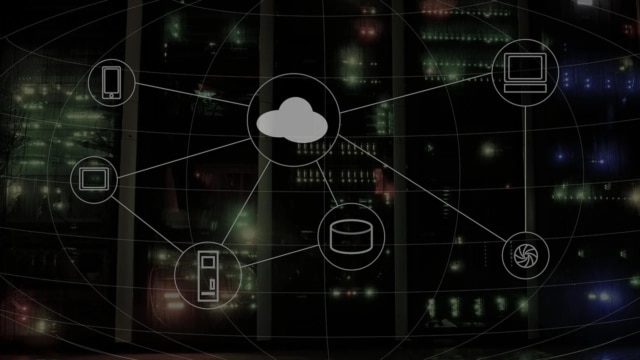
What are the top cloud management platforms and vendors?
When to look for a cloud management platform (CMP)
As more businesses migrate services to a cloud-based infrastructure to take advantage of low deployment costs, they increasingly encounter issues. These can include integrating effective security processes that work across all applications, compliance problems, issues monitoring and analysing data, and struggles managing capacity.
When these issues begin to arise, it becomes apparent that there is a need for better visibility and control. To achieve that, it also becomes apparent that there is a need for a consolidated central control platform that monitors, analyses, reports, and controls every application being utilised. That platform is a CMP.
Even if you have chosen a self-service cloud option, you will likely have to look for a good CMP platform and vendor to integrate into your system, especially if you have self-service portals.
Platforms
There is a bewildering array of CMPs on today’s market. Choosing one can be difficult. By looking at the various factors and issues we have discussed, you can then make a list of what your own priorities are, and then begin sifting through the many choices and making a shortlist. 20 of the best are listed here, and here are some of the main choices:
-
- RackWare
- Microsoft Cloud – Microsoft Azure
- BMC Software
- IBM Bluemix Cloud
- CloudBolt
- Red Hat Cloud
Vendors
As with actual platforms, there are a wide number of vendors offering these platforms. Take time to look at what each vendor and platform offers, examine how their service fits your needs, and look at reviews from existing or previous customers. What is ‘best’ for one company may not work for another. Some of the leading vendors include:
-
- VMware vRealize Operations (vROps)
- Turbonomic
- Cisco UCS Director
- HyperCloud
- Nutanix Calm
Explore RingCentral cloud services
Prioritising your needs and identifying the best services are crucial steps to effective cloud management. Depending on the industry you work in, your cloud computing needs may vary greatly. For example, cloud computing in education has its own challenges.
As well as actual software and other solutions, investigate how communications will work. There are many examples of how companies offer packages to enable and assist transition to the cloud, such as the partnership between RingCentral and BT.
The takeaway
As with any major IT strategy, deciding on a cloud management platform is not a decision to be taken quickly. Finding the perfect fit for your business needs can be a crucial part of long-term plans, but making the wrong choice can be a costly mistake.
Make a plan of what you need, not only in the short-term but also for any long term strategies you have for IT expansion and increased cloud use. Scalability and flexibility will always be two factors you should prioritise, while also considering other important issues such as cost management and security.
Originally published Jan 20, 2021, updated Apr 10, 2023

